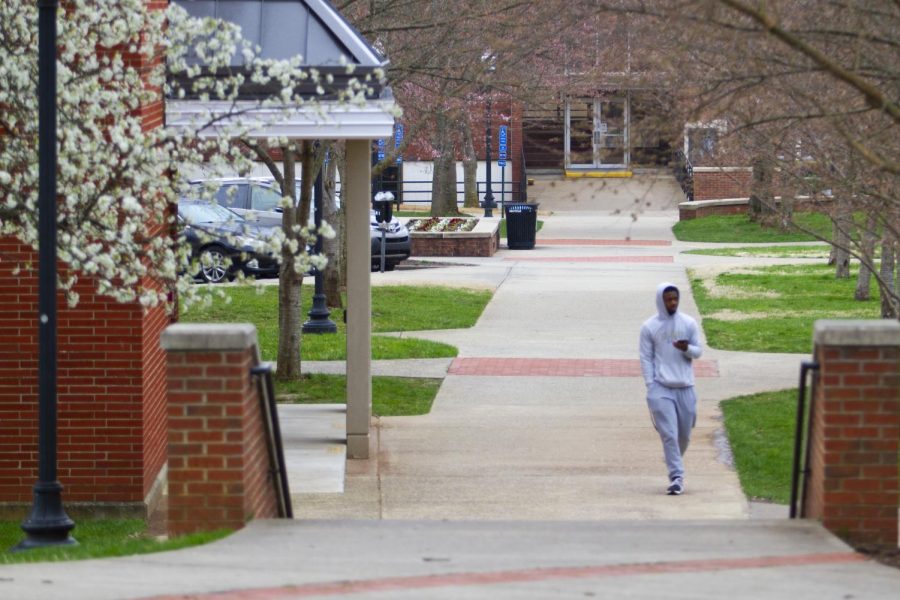Faculty makes demands in response to Big Red Restart Plan
June 26, 2020
The Faculty Senate Executive Committee along with the WKU Chapter of American Association of University Professors issued a joint statement addressed to President Timothy Caboni, Provost Cheryl Stevens and Regent Claus Ernest regarding the Big Red Restart Plan Wednesday.
“Faculty are subject matter and pedagogical experts and are in the best positions to make decisions regarding course delivery,” said the AAUP and Senate Executive Committee via email.
The list of demands include faculty choice on how courses should be delivered, free COVID-19 testing for those who are planning to come back to campus, no job losses for faculty and academic support staff and no increase in course workloads.
Julie Shadoan, chair of the Senate Executive Committee, said the statement and a list of demands come after the university issued administrative guidelines earlier that week.
“I as Faculty Senate Chair and Margaret Crowder, the President of the WKU Chapter of AAUP, received numerous emails, text and phone calls for the last few days from faculty requesting that we take immediate action addressing what seems to be a directive to faculty on how courses would be delivered in the fall,” Shadoan said.
The groups’ concerns, presented as demands, are:
– Faculty must decide how to deliver their courses.
– There must “university and frequent free COVID-19 testing.”
– There will be no job losses among faculty and academic support staff.
– Course loads and overall faculty workloads will not exceed those outlined in a faculty member’s appointment letter.
The biggest issue, Shadoan said, was faculty feeling like their choices were limited and that they know best on how to deliver courses based on the subject matter.
She further explained that the expectations of faculty are significant and believes that faculty choice was at the heart of the Big Red Restart Plan but had gotten lost within the planning of it.
Late Thursday, Provost Cheryl Stevens sent out an email to faculty and staff addressing the demands listed.
In her email, Stevens said the hybrid in-person/online classes were not definite, but were most desired by students who were surveyed. The hybrid class guideline includes 70% face-to-face instruction and 30% online. She said leadership in each department and deans will work to create a solution.
Stevens said WKU is following guidelines set by the Equal Employment Opportunity Commission and will offer alternative work arrangements to those who seek them through their department head and WKU’s EEO office.
Stevens also said in the email that the university has been working to build an on-campus testing program that will be introduced this fall.
In response to the demand to protect faculty and academic support staff jobs, Stevens said the university is trying to protect as many faculty and staff positions as possible.
She said department heads and deans have added additional courses and increased course caps to address reduction in state funding as well as to protect full time faculty and staff positions. Reallocating the workload from research and service was a “very difficult decision, especially since most faculty will take a pay reduction.”
Margaret Crowder, president of WKU’s AAUP chapter, said the right decisions need to be made this fall to ensure the safety of the campus community, which includes faculty, staff and students.
In order to have a successful fall semester for everyone, Crowder said, the campus not only needs to give room for people to make their own health decisions, but faculty also needs to be given the choice about how their courses are taught, whether in person, online or a hybrid.
“Faculty is in the best position to determine the best course modality. That’s for their own health and safety and for the safety of their students,” Crowder said. “We know that coming into this fall that, if we have enough time, we can develop the courses the way that we want to and to make sure that everyone can engage and that they are accessible.”
























